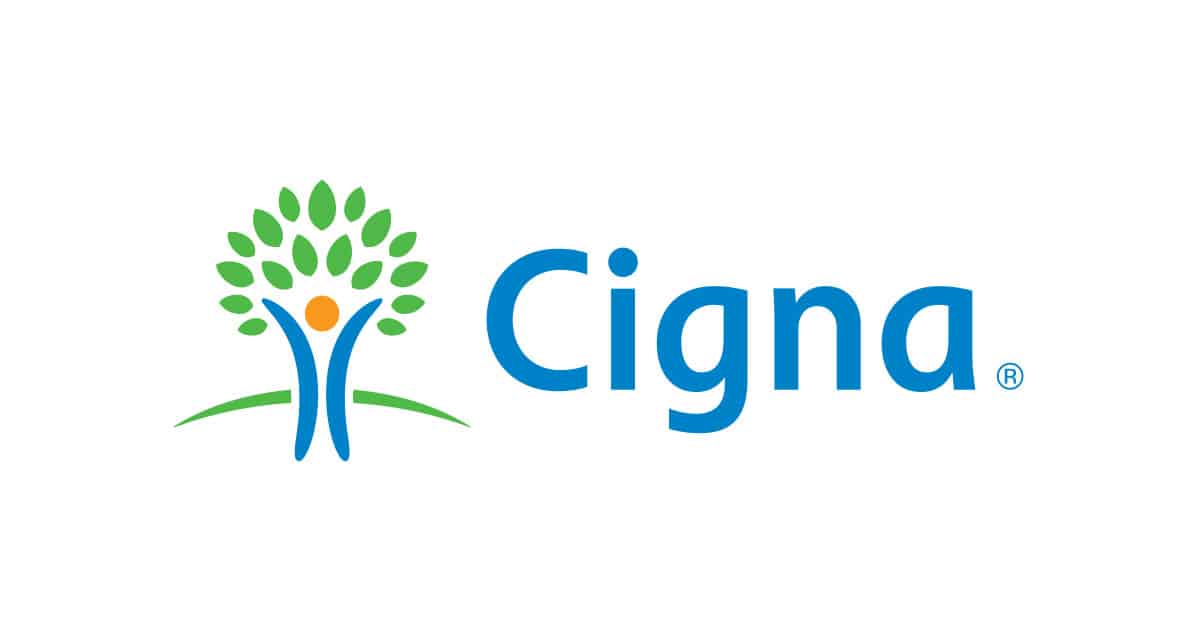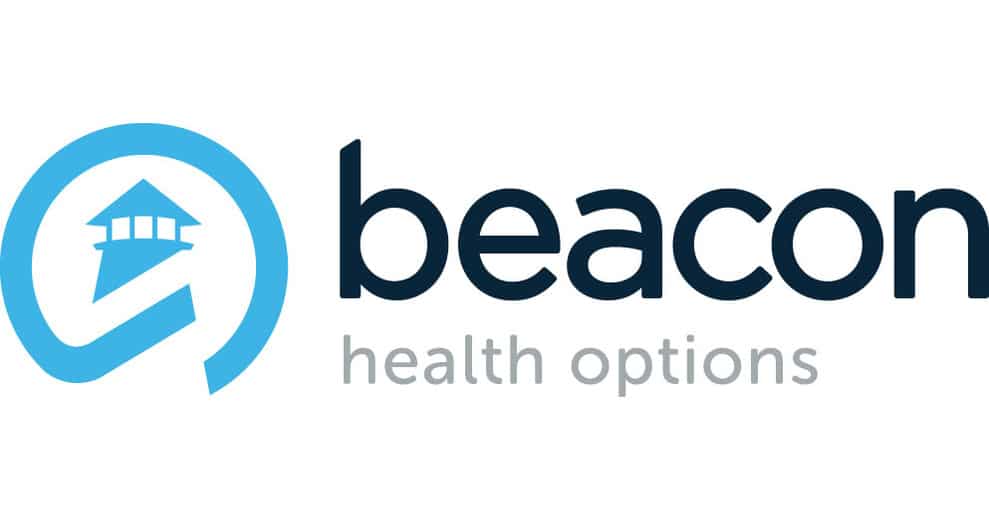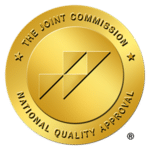Table of Contents
If you or a loved one is struggling with fentanyl addiction, our fentanyl rehab program in Atlanta, GA is here to provide the support and treatment needed to overcome this devastating disease. Our experienced team of professionals offers comprehensive care, including detoxification, counseling, and therapy, all within a safe and nurturing environment. We understand the unique challenges associated with fentanyl addiction and are dedicated to helping individuals achieve lasting recovery, rebuild their lives, and restore happiness and health.
What is Fentanyl?
Fentanyl stands as a highly potent opioid, often surpassing the strength of morphine by 80 to 100 times. Doctors typically prescribe this Schedule II drug for extreme pain post-surgery or for cancer patients. It also serves those with chronic pain unresponsive to other opioids. Brand names include Actiq, Duragesic, and Sublimaze. However, when encountered on the streets, it assumes aliases like Apache, China Girl, and China White. The grave concern arises when illicit fentanyl is mixed with heroin, enhancing its potency to lethal levels even in minimal doses.
Legitimately prescribed fentanyl is usually in the form of injections, patches, or lozenges. However, the sweeping fentanyl overdose cases in Georgia largely stem from illegal production, where it’s typically transformed into a powder or dispensed on blotter paper.
Understanding Fentanyl Addiction
Addiction is a complex ailment. It manifests when someone continually uses a substance like fentanyl, despite its adverse impacts. The compelling urge, even amid the desire to quit, characterizes addiction.
Fentanyl’s addictive potential stems from its interaction with the brain’s mu-opioid receptors. It targets the brain regions governing emotions and pain. On binding to these receptors, the drug activates the brain’s reward system, flooding it with dopamine. This dopamine rush generates the euphoria linked to opioids and lays the foundation for addiction. The brain then craves the euphoric sensations, perpetuating a cycle of dependence.
Beyond addiction, fentanyl also fosters physical reliance. Here, the body becomes so acclimated to the drug that it fails to operate normally in its absence, leading to severe withdrawal symptoms if abruptly discontinued.
Being a synthetic opioid, fentanyl often mixes with illicit substances like heroin, meth, or cocaine. This amplifies overdose risks, especially for unaware users. The lethal blend with fentanyl can spike overdose chances due to its unparalleled potency.
Fentanyl Patch Addiction
Fentanyl patches are medical tools designed to provide a steady release of the painkiller through the skin. These transdermal patches, when placed on the skin, release the medication in a controlled manner over time, leading many to question the possibility of addiction from such patches.
Unfortunately, the potential for addiction exists. The time-release nature of the fentanyl patch can be manipulated to achieve a high, making it susceptible to misuse.
Methods of misuse encompass wearing multiple patches simultaneously, replacing patches more frequently than recommended, or even consuming them by chewing or swallowing. Some users may opt for more invasive methods such as injecting the gel from the patches, brewing them into a tea, or using them rectally.
The primary concern arises from the patch’s intended function: to dispense a large dose of fentanyl gradually. Manipulating the release can result in the drug flooding the system, dramatically increasing the risk of a lethal overdose.
In regions like Georgia, the misuse of fentanyl has become alarmingly prevalent. The versatile ways in which it can be abused combined with instances of unknowing consumption amplify the peril it poses to the community. West Georgia Wellness Center offers comprehensive and compassionate fentanyl rehab in Atlanta, GA.
Risks of Fentanyl Overdose
The risks surrounding fentanyl are varied. Its formidable strength means that even slight over-prescription can be fatal. Over time, tolerance might develop, leading users to consume dangerous quantities, escalating the overdose potential.
Indicators of a fentanyl overdose encompass:
- Breathing difficulties or cessation
- Reduced alertness
- Weak breathing
- Bluish skin
- Likely unconsciousness
Swift medical intervention is imperative in such scenarios.
The hazards magnify with street-sourced fentanyl. Many unwittingly turn to it as an alternative to heroin, oblivious to its deadly potency even in minuscule amounts. The fentanyl addition to other narcotics by illegal producers, mainly due to its cost-effectiveness, pushes consumers towards unintentional and frequently fatal overdoses. This showcases the deeply intertwined challenges of both heroin and fentanyl dependence, underscoring the urgency for specialized treatment plans addressing the distinct dangers of each drug. If you or your loved one is struggling with fentanyl addiction in Georgia, call West Georgia Wellness today to begin your fentanyl rehab.
Signs and Symptoms of Fentanyl Addiction
Fentanyl addiction can subtly entrench itself into an individual’s life, often unnoticed until it’s deeply rooted. Recognizing certain signs can be pivotal in identifying the need for a fentanyl rehab in Atlanta. Some notable signs of fentanyl addiction are:
- Chronic fatigue
- Excessive drowsiness
- Slurred speech
- Lack of physical coordination
- Cognitive difficulties
- Constricted pupils
- Frequent memory gaps
- Overwhelming desire for the drug, even when trying to abstain
- Inability to stop using fentanyl
- Engaging in “doctor shopping” to secure multiple prescriptions
As the addiction worsens, symptoms become more apparent. Further indications of a severe fentanyl addiction can encompass:
- Pale skin tone
- Respiratory challenges
- Cold, clammy, and pale skin
- Stomach pain and cramps
- Muscle aches
- Nausea followed by vomiting
- Disturbed sleep patterns
- Enduring fatigue
- Elevated anxiety
- Occurrence of seizures
- Extended periods of depression
- Sunken eyes
- Mouth ulcers
- Monetary issues Legal conflicts.
As the addiction progresses, individuals may experience financial difficulties, strained relationships, and legal issues as a result of their substance abuse. If you or someone you know is displaying these signs, it’s essential to seek professional help from West Georgia Wellness Center, a reputable fentanyl rehab program in Atlanta, GA.
Fentanyl Addiction Treatment in Atlanta
The sheer strength of fentanyl makes any addiction to it particularly perilous. Those looking for fentanyl rehab in Atlanta, GA should consider an in-patient, residential facility. At such a center, medically supervised detox initiates the journey, followed by comprehensive addiction treatment.
In-patient therapy is especially effective for fentanyl due to the physical and psychological intricacies of opioid addiction. Moreover, for many, fentanyl might not be the sole substance of abuse, leading to multifaceted addiction scenarios. Furthermore, untreated or undiagnosed mental health conditions could drive individuals to self-medicate with such substances. Therefore, it’s pivotal to choose a facility like West Georgia Wellness Center that adopts a dual-diagnosis approach. This ensures simultaneous treatment of mental health issues alongside fentanyl addiction.
Upon admission to a treatment center, detoxification kicks off the healing journey, followed by a personalized treatment strategy.
Fentanyl Rehab
Given its chronic nature, a residential and in-patient program typically serves best for fentanyl addiction. However, alternatives like outpatient rehab are suitable for those who have completed in-patient therapy.
West Georgia Wellness Center offers residential substance abuse and residential mental health treatment that will blend behavioral therapies, and if needed, medical interventions, encompassing group, individual, and familial therapy sessions.
Recognizing Fentanyl Withdrawal Signs
Withdrawal from fentanyl mirrors symptoms seen with other opioids. Most individuals start experiencing initial symptoms a few hours post their last dose. The most challenging symptoms typically emerge within a day. For the majority, these symptoms wane within ten days.
Early withdrawal manifestations include:
- Muscular or skeletal pain
- Sleeplessness
- Gastrointestinal disturbances
- Thermal irregularities
- Involuntary leg movements
- Drug cravings
- Prolonged symptoms might include sustained anxiety and insomnia.
Navigating Fentanyl Withdrawal
Withdrawal timelines vary among individuals, but a general trajectory can be outlined:
- Initial Phase: Lasting up to 10 days, onset within a day of the last dose. Symptoms might include anxiety, sleep disturbances, and physical discomfort.
- Secondary Phase: Characterized by decreased well-being sensations and cravings, this can span up to six months.
Regardless of the duration of fentanyl use, its potency warrants medical oversight during withdrawal.
At West Georgia Wellness Center, two predominant approaches, tapering down or abrupt cessation, guide the withdrawal process. The former involves reducing fentanyl doses or using alternatives like suboxone to mitigate symptoms, making withdrawal smoother. The latter can be extremely challenging, with side effects like dehydration. The best strategy is determined in consultation with medical professionals.
Benefits of Fentanyl Rehab in Atlanta
Engaging in a fentanyl rehab in Atlanta at West Georgia Wellness Center offers numerous advantages for individuals aiming for sobriety. Many individuals attempting to overcome fentanyl addiction independently struggle. A structured rehab program furnishes the necessary support and guidance, steering them towards successful recovery. Among the myriad benefits available for those grappling with fentanyl addiction at West Georgia Wellness Center are:
- Identifying the root of their addiction
- Acquiring healthy coping mechanisms to sidestep relapse triggers
- Access to diverse therapeutic modalities
- Establishing a nurturing circle of family and friends prioritizing their sobriety
- Management of early recovery withdrawal symptoms
- Family-centered therapy sessions to mend past rifts
- Structured routine implementation
- Peer-based support from fellow recovery participants comprehending the recovery journey’s intricacies
- Post-rehab care guidance ensuring long-term recovery
Comprehensive Therapies for Fentanyl Addiction Treatment in Atlanta
At West Georgia Wellness Center, our tailored treatment regimen integrates both evidence-based and holistic therapies to ensure comprehensive care for the entire individual.
-
Cognitive Behavioral Therapy (CBT): This approach pinpoints and addresses maladaptive behaviors, offering strategies to modify them.
-
Dialectical Behavior Therapy (DBT): An extension of CBT, DBT combines mindfulness practices to aid individuals in managing difficult emotions and situations.
- Individual Therapy: A personalized therapeutic approach where patients work one-on-one with a therapist. This setting provides a private environment for patients to openly discuss their experiences, feelings, and concerns, facilitating deeper introspection and understanding.
-
Group Therapy: This offers a platform for individuals to discuss shared issues in an understanding and collective environment.
-
Trauma Therapy: Focuses on addressing and healing trauma that may be linked to the roots of addiction.
-
Family Therapy: Facilitated by a therapist, this therapy fosters improved communication and relationship-building among family members.
-
Holistic Therapy: Embraces a comprehensive approach, encompassing the physical, emotional, and spiritual aspects. Activities might include yoga and mindfulness meditation.
-
Red Light Therapy: A non-invasive therapy known for its potential healing benefits.
-
Neurofeedback Therapy: A form of biofeedback that teaches self-control of certain physiological functions to improve awareness and volitional control.
-
Biosound Therapy: Incorporates a combination of biofeedback, sound therapy, music therapy, and guided imagery for relaxation and emotional regulation.
-
Medication-Assisted Treatment: Uses medications, in combination with therapy, to treat substance abuse disorders.
-
Genetic Testing: Helps in understanding individual genetics to provide tailored treatment plans.
-
Psychiatry: Involves the medical treatment of mental disorders.
-
Experiential Therapy: Utilizes expressive tools and activities such as role-playing, arts and crafts, or animal care to represent and articulate underlying issues.
By encompassing these therapeutic modalities, we aim to provide a well-rounded and effective approach to fentanyl addiction treatment, addressing every facet of an individual’s well-being at our fentanyl rehab in Atlanta.
What to Expect at our Fentanyl Rehab in Atlanta
At our fentanyl rehab in Atlanta, individuals can expect a personalized approach to treatment designed to address their specific needs and circumstances. Our comprehensive program includes medically supervised detoxification to safely manage withdrawal symptoms, evidence-based therapies to address the root causes of addiction, and holistic treatments to promote overall well-being.
Throughout the recovery process, our compassionate team will provide guidance, support, and encouragement to help individuals regain control of their lives and build a strong foundation for lasting sobriety. Additionally, our rehab program focuses on developing essential coping skills, fostering healthy relationships, and creating a supportive aftercare plan to ensure long-term success in recovery.
How Long Does Fentanyl Rehab in Atlanta Last?
The duration of fentanyl rehab in Atlanta can vary depending on the individual’s needs, progress, and level of commitment to recovery. Generally, treatment programs range from 30 to 90 days or longer, with aftercare support and ongoing therapy often recommended for maintaining sobriety and preventing relapse.
It’s essential to understand that recovery from fentanyl addiction is a lifelong process, and the length of time spent in rehab is just one aspect of the journey. Our team works closely with each individual to create a customized treatment plan that supports their unique needs and goals, ensuring the best possible foundation for lasting recovery.
How Long Does Fentanyl Stay in Your System?
Fentanyl, a powerful synthetic opioid, has legitimate medical uses but is also susceptible to abuse. Depending on the testing method, the detectability window for fentanyl varies: it can be found in blood tests for up to 12 hours, saliva tests for around 48 hours, urine tests for as long as 72 hours, and hair tests can trace its presence for up to 90 days. It’s important to note that individual factors, such as metabolism rate and the amount taken, can influence these durations. Given its potency, it’s vital to be aware of how long fentanyl stays in one’s system.
Is Fentanyl Rehab Covered by Insurance?
The majority of health insurance providers usually cover a portion, if not all, of the expenses related to fentanyl addiction treatment. Numerous inpatient addiction rehab facilities accept both national and regional insurance policies. For those who opt for a rehab center not included in their insurance, many facilities offer flexible payment plans.
The prospect of potential medical expenses can deter some from seeking treatment. However, undergoing professional treatment can equip individuals with the necessary tools to curb their addiction, possibly leading to savings in the long run. If fentanyl addiction is impacting you or someone close to you, it’s crucial to seek assistance.
What Is the Cost of Fentanyl Rehab?
The pricing for fentanyl rehab treatment can vary, contingent on individual needs. While some may be apprehensive about initiating treatment due to financial constraints, it’s imperative to prioritize professional care over self-guided attempts to ensure a safe and enduring recovery. Undertaking at-home treatments or opting for quick detox procedures to save on costs might prove hazardous or even fatal.
Factors influencing rehab pricing include:
- The facility’s location
- The extent of care required
- Applicability of insurance
- Intensity of addiction
- Presence of dual diagnoses or additional treatments
It’s worth noting that the repercussions of an untreated addiction to fentanyl can incur various costs, such as:
- Expenditures related to procuring the drug
- Legal implications and fees
- Health maintenance expenses, including those from infectious disease transmission
- Medical bills stemming from overdose treatment
- Costs associated with drug-induced accidents or injuries.
Effective Fentanyl Addiction Treatment in Atlanta, GA
If you or a loved one is struggling with fentanyl addiction, it’s crucial to seek professional help as soon as possible. Our fentanyl rehab in Atlanta, GA offers comprehensive, evidence-based treatment and compassionate care to help individuals achieve lasting recovery.
Our dedicated team of professionals works closely with each individual to develop a personalized treatment plan that addresses their unique needs and circumstances. With a focus on whole-person wellness and long-term success, our program provides the tools, support, and guidance needed to overcome fentanyl addiction and reclaim a healthy, fulfilling life.
Don’t let fentanyl addiction control your life any longer. Contact us today to learn more about our program and how we can help you on your journey to recovery. With the right support and treatment, lasting recovery is possible – take the first step toward a brighter future by reaching out to our fentanyl rehab in Atlanta now.
Fentanyl Rehab Frequently Asked Questions
What is Involved in Fentanyl Rehab?
Fentanyl rehab involves medically supervised detox, therapy, and long-term follow-up care. Due to fentanyl’s potency, detox often requires careful management of withdrawal symptoms.
What Makes Fentanyl so Addictive?
Fentanyl’s high potency and rapid onset of effects contribute to its addictive potential.
What are the Dangers of Fentanyl Use?
Fentanyl poses a high risk of overdose and respiratory failure, even in small amounts.
Can Fentanyl Cause Long-Term Health Issues?
Chronic use can lead to respiratory problems, gastrointestinal issues, and mental health disorders.
What are Common Withdrawal Symptoms of Fentanyl?
Withdrawal symptoms include muscle aches, insomnia, diarrhea, and intense cravings.
Is Medication-Assisted Treatment Used for Fentanyl Addiction?
Yes, medications like methadone and buprenorphine are used to manage withdrawal and cravings.
How Long Does Fentanyl Detox Take?
Detox duration varies but typically lasts from a few days to a week.
What Therapies are Used in Fentanyl Rehab?
Common therapies include Cognitive Behavioral Therapy, group therapy, and family counseling, focusing on addiction triggers and coping mechanisms.
How Long is Fentanyl Rehab?
The length of fentanyl rehab varies, typically ranging from a few weeks to several months, based on individual needs and addiction severity.














